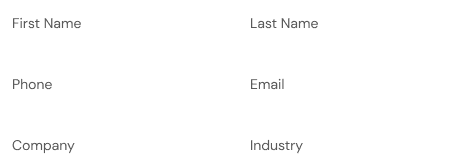
Whether you love it or hate it, no one can deny the impact of remote work on business. It’s changed the scope of the careers we’re able to embark upon, how we do them, and how they work alongside our day-to-day lives.
Clearly, we’ve shown our ability to adapt to new ways of working. So, what if remote work wasn’t the only change we made that shakes up the status quo?
The latest trend stirring up conversation is around the non-linear work day—aka a ditching of the classic 9-5 structure. Does it work? What barriers does it cause? What are the benefits? How would you implement it?
Let’s find out…
What would a non-linear day look like?
Essentially, a non-linear workday is simply one where you work to your own schedule, instead of an archetype 9-5 model. You’d likely still work the same (or a similar) number of hours, but you might tailor your day to when you are most productive or free. For example, if you tend to get things done best early in the morning or later in the evening, you could utilise these times and have a break in the middle of the day when you’re feeling less inspired, energised or busy.
How would it work?
As you might imagine, a non-linear workday tends to go hand in hand with remote work, where everything works to your own schedule. The nature of the office makes it perfect for a 9-5 structure, but there are ways around it. Flexible or hybrid working styles might mean that you’re able to spend a morning in the office, take a break in the afternoon, and then continue to work at home in the evening.
What are the challenges?
The benefit of a 9-5 structure is fairly obvious: you’re all working at the same time. If you have people online and offline at random intervals, it can cause problems if not properly communicated—especially if a person is causing blockers for the rest of their team. That’s why transparency and communication are critical in non-traditional working environments.
What are the benefits?
The benefits of a non-linear day primarily revolve around freedom. For anyone - employees and business owners alike - that has ever wished they could spend more time with their children or other relatives but couldn’t because of 9-5 working hours, non-linear work could make that happen. Similarly, you’re able to harness your most productive times without feeling guilty. And, lastly, for leaders, you’re more likely to foster a workplace of happy people who want to stay at your company.
After all, recent research has shown that 37% of European employees are prepared to decline a job if flexible hours are not offered, and just over two-thirds (69%) would accept a pay cut in exchange for flexible hours.
Fool-proofing any trouble
Despite the majority of employees making the most of flexible work, there are those who might still abuse the leniency. As with most policies, there is nuance involved. Sometimes, depending on roles and responsibilities, non-linear work days won’t always work—like in specific customer service shifts, for example, or reception duties. In these instances, use your common sense, while also listening to and engaging with the wants and needs of your employees.
In order to really reap the benefits of non-linear work hours, you’ll need to have a robust admin process which enables full transparency of availability, so you’re not left uncertain of where your teams are in an emergency.
At Remotify, we’ve designed a remote-first culture that inspires accountability and positive impact from your team members. If you’re interested in applying flexible working procedures to your business, why not check out our services and book a call? We’d be happy to support you on your journey.
Jump straight to a key chapter
Spending Too
Much Time
Onboarding?
your remote hiring in the
Philippines, excellently.
Say Goodbye to High Costs!
Request Your Free Consultation Today andSave a Massive 70% on Your Workforce!

Ready to thrive in a remote-first work environment?


